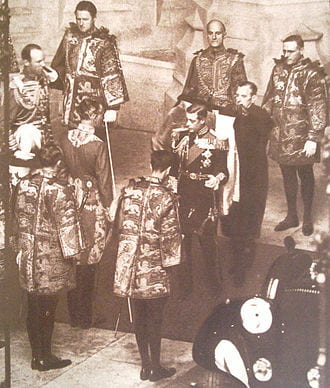Continuing to research the weird and wonderful world of ‘adulterine bastardy’, including some interesting claims for very long pregnancies, and some questionable treatment of women, as witnesses and as possible ‘adulteresses’, I have been reminded of the recent run-out of this area of law, in relation to the holding of peerages. The Pringle case, In the matter of the Baronetcy of Pringle of Stichill [2016] UKPC 16 https://www.bailii.org/uk/cases/UKPC/2016/16.html featured the displacing of a line which had, since the early 20th century, been in possession of the title. Then DNA testing revealed that there was no chance that the person presumed to be entitled in the current generation was actually a lineal descendant of the first grantee (which is the requirement in this sort of case). The case gave rise to some interesting and humane comment – I particularly valued G. Black, ‘Identifying the legal parent/child relationship and the biological prerogative: who then is my parent?’ Jur. Rev. 2018, 1, 22-41, and B. Häcker, ‘Honour runs in the blood’, L.Q.R. 2017, 133(Jan), 36-41, which explored comparative rules on challenging paternity, and considered the problems associated with upsetting family units in situations well beyond that of peerages. My own thought, though, was that, while, in general, it is absolutely right to be cautious about wholly prioritising genetic over social relationships, especially if the latter are long-lasting, in the context of hereditary titles, a strong focus on DNA could serve a very useful purpose. I have no time for the whole business of hereditary entitlement to ‘specialness’, from the monarchy downwards – it is embarrassing, babyish nonsense – but even those who shut their critical faculties down with ideas about the magical powers of particular families would have to think again if they were confronted with the likely fact that they were no more immune from infusions of unexpected genetic material than anyone else’s family. A respectable Legal Historian cannot of course suggest that it would be worth a thought for anyone invited to a royal garden party or the House of Lords bar, who has the opportunity to collect a DNA sample.
29/11.2020.
